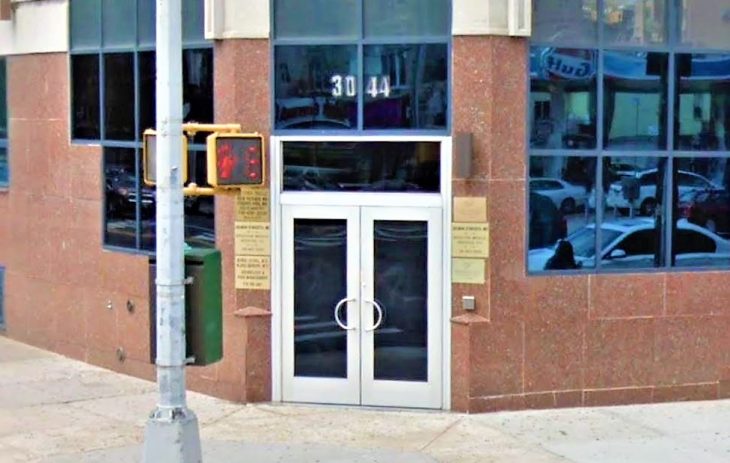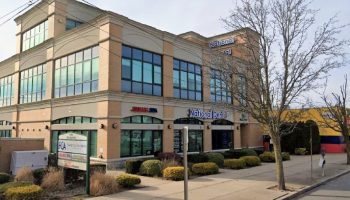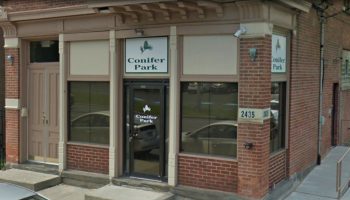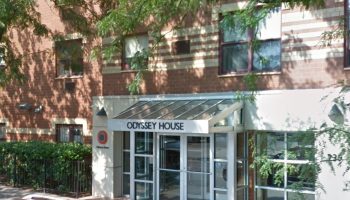About Bridge Back to Life Center Southern Brooklyn Center
Bridge Back to Life Center Southern Brooklyn Center, located in Brooklyn, New York, is a state licensed chemical dependency treatment program that supports men and women struggling with drug, alcohol, opioid, and substance use.
They offer ancillary withdrawal services here as well and this can be followed up with medication assisted treatment. Their Brooklyn location offers services in an outpatient setting and they work with clients age 13 and over. They accept policies from most major insurance providers including Medicaid and Medicare. There are also sliding scale discounts available to help alleviate the cost of care.
Evidence Based Care
The heart of the recovery program here is rooted in evidence based practices including psychiatric evaluations, trauma informed care, and treatment for co occurring mental health struggles.
They apply the matrix model here along with cognitive behavioral therapy and dialectical behavioral therapy, and other evidence based practices to help work through the complex emotions and substance use struggles you’re facing.
Medication Management
You’ll be supported through MAT including the use of FDA approved medications, Suboxone and Vivitrol. This therapy can help you manage cravings early on so that you can focus fully on counseling and therapy services.
Medication support is typically offered when you start their ancillary withdrawal program. This program is designed for individuals at the start of their recovery journey.
Specialized Recovery Programs
There are recovery tracks here for professionals who are struggling with substance abuse, members of the LGBTQ community, and individuals who are navigating the legal system because of a DWI related charge.
Once you’ve safely stabilized your body, you can begin on these treatment tracks so that you can build the skills you need for sustainable sobriety.
Person Focused Services
While this center is rooted in providing proven approaches to help you work through your recovery needs, you’ll also find person focused supports here as well. This includes family focused counseling, narrative therapy, targeted programs for adolescents and young adults that address age specific struggles, and other holistic supports.
There are also social support groups that tackle specific issues such as domestic violence, anger management, LGBTQ related issues, and other common issues individuals in recovery often face.
Levels of Care
-
Outpatient
In outpatient therapy, you’ll attend therapy sessions several times each week while living at home. This is ideal if you have a strong support system and a lower risk of relapse. Outpatient treatment offers flexibility to maintain work, school or family obligations.
-
Aftercare
Aftercare programs provide ongoing support after you complete a rehab program. They may include several components to help you maintain sobriety including therapy, community support groups and relapse prevention strategies. This gives you a network of resources as you reintegrate into your daily life.
-
Dual Diagnosis
Dual diagnosis programs address substance use disorders and co-occurring mental health conditions simultaneously. This integrated approach to care improves the likelihood of long term recovery and stability by addressing the root causes of addiction.
Detox Service Setting
-
Outpatient Detox
Outpatient detox gives you access to medically supervised withdrawal services while still allowing you to live at home. You’ll attend a clinic for treatment and monitoring. This flexible option is suitable for those with mild to moderate withdrawal symptoms who have strong support systems.
Programs
-
Adult (18+)
Adult programs address the substance use and life challenges specific to adults. Therapists can deliver sessions in individual, group and family settings. Services often include job support and life skills training in a structured environment.
-
Alcohol Detox
Alcohol detox programs offer medical support to help individuals withdraw safely from alcohol. Your care team may use medications to ease your symptoms and provide medical monitoring to address complications.
-
Cognitive Behavioral Therapy
Cognitive behavioral therapy focuses on changing harmful thought patterns and behaviors associated with addiction. You’ll learn healthier coping mechanisms by identifying and replacing negative thoughts. This improves your emotional resilience and decreases your relapse potential.
-
Drug Detox
Drug detox programs support individuals who are withdrawing from addictive substances like cocaine and heroin. Medical support helps you manage symptoms in a controlled and safe environment so you can achieve initial sobriety.
-
EMDR Therapy
EMDR stands for eye movement desensitization and reprocessing therapy. It helps you process traumatic memories that may underlie addiction. You’ll learn how to reduce emotional distress and begin healing from past events. This makes it effective for trauma related addiction causes.
-
LGBTQ Friendly
LGBTQ friendly programs create an inclusive and affirming space for recovery. Treatment is sensitive to issues like discrimination and stigma. You’ll receive support and therapy that respects and acknowledges your unique experiences.
-
Men
Men's programs address substance use while also considering the social pressures, family roles and mental health concerns that are specific to men. You’ll learn healthy coping mechanisms as you build emotional resilience and develop communication skills.
-
Military / Veterans
Military and veteran programs offer specialized support for clients who served in the armed services. Programs focus on reintegration and healing within a structured and supportive environment that acknowledges the unique struggles of military life.
-
Opioid Detox
Opioid detox uses medications to ease severe withdrawal symptoms. It also includes medical supervision to help you manage potential complications. These services allow you to stabilize and begin a recovery plan.
-
Seniors (65+)
Senior programs address the unique needs of older adults like chronic pain, grief and isolation. Programs include peer support and medical oversight for age related health concerns. The goal is to improve quality of life and promote sober aging.
-
Women
Women's programs offer a safe and supportive space to focus on gender specific issues such as trauma, family roles and mental health conditions. Therapists tailor the sessions to address women's needs and foster empowerment in a healing and nurturing environment.
-
Young Adult (18 - 25)
Young adult programs are designed for individuals who are transitioning into adulthood. Topics of discussion typically include identity, independence and peer relationships. Providers may also offer life skills training and career support.
Payment Options
- EAP
- Payment Assistance
- Medicaid
- Medicare
- Military Insurance
- Private Insurance
- Self Pay
Amenities
- Music Room
Contact
3044 Coney Island Avenue 3rd Floor
Brooklyn, NY 11235





